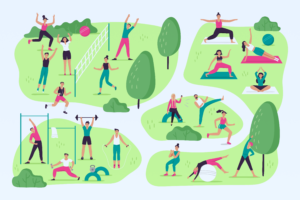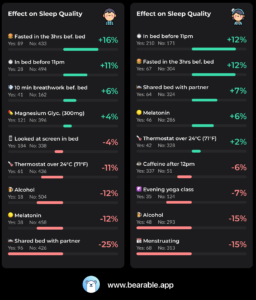So what does this have to do with insomnia?
I’ve had insomnia for as long as I can remember. As a child, I would lay awake for hours staring at the ceiling and this has never changed. There have been short periods where it might get a bit better or worse. But whether I like it or not; I’m a full-blown insomniac. To add insult to injury, the symptoms have become even worse during the pandemic. I’ve more frequently found myself awake at 4 am for no reason at all. Fretting about having to get up in a few hours and attempt to be a productive human being. I’ve tried melatonin, sleep hygiene, no-screens, sleep apps. All the things. So what else is left to try? Last week I listened to an interview with the founder of a sleep app who admitted that the only thing that has ever helped him sleep has been physical exhaustion. This got me thinking that perhaps there was a link between the decline in my steps and the increase in the symptoms of insomnia. There was only one thing to do about it: see if walking more helped me to sleep a little better.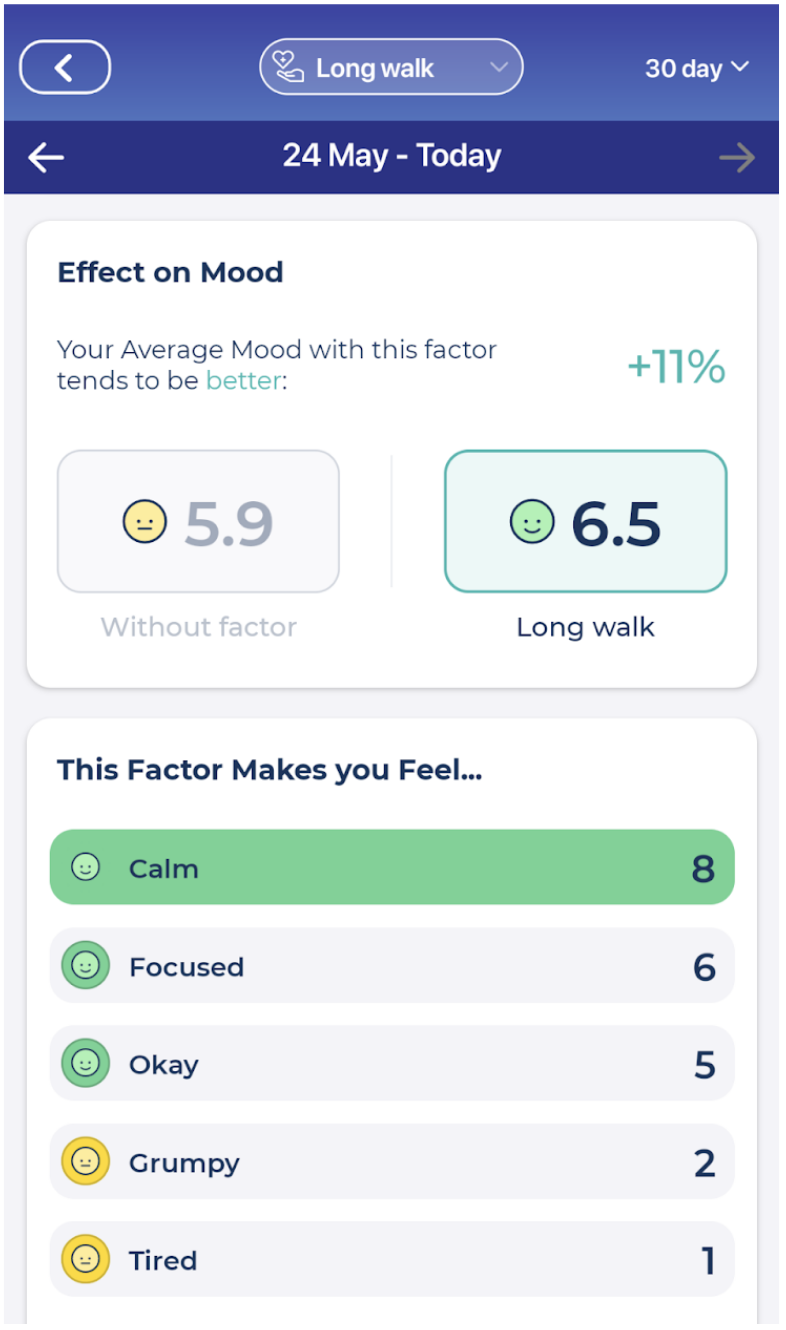
This sounds an awful lot like that walking 10,000 steps a day thing
Yeah, kind of. At this point, I’m sure that most people are aware of the fairly ubiquitous suggestion that walking 10,000 steps a day is good for your health. 10,000 steps has some shady roots. It began life as an advertising campaign for pedometers before the 1964 Tokyo Olympics. However, it seems to have stuck around for good reason. While 10,000 steps is arbitrary in itself, it handily ensures that you meet the recommended weekly exercise requirements outlined by the CDC. Interestingly, there are no large scale studies to show that 10,000 steps is more effective than 5,000 steps at keeping you healthy or alive. BUT there is evidence that shows that:-
- The more exercise you do the better (within reason)
- That walking more than 5000 steps a day can factor into helping you to live longer
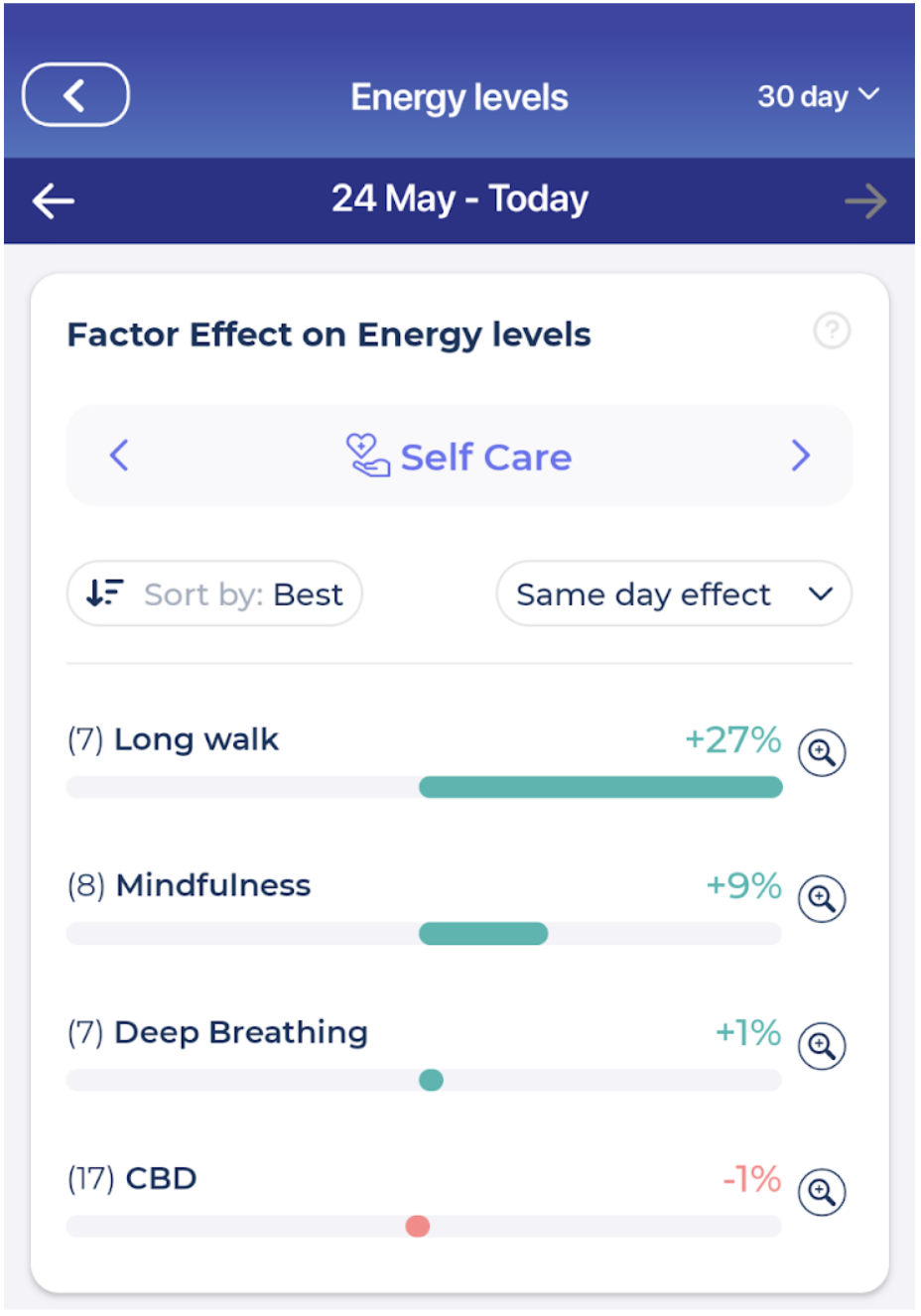
Walking 10,000 steps a day for a week
10,000 steps is roughly 5 miles, so I planned a route around the cliff tops and bays near my home. The benefit of this walk was that it was through fields, along beaches, and up the side of rocky coastal paths. Which I hoped would make me (and the dog) a bit more exhausted. I made sure that I’d finish the walk at least 4 hours before going to bed so that it wouldn’t disrupt my sleep and made sure to stay as hydrated as possible along the way.Day one: I walked 15,454 steps. About seven miles across the course of the day. This included a 4,500 step dog walk in the morning. It was a warm sunny Saturday and this made wanting to walk in the evening easy.
Day two: I walked 12,522 steps. About 5.5 miles. Walking along the cliffs was a nice way to end the weekend and to begin thinking about the week ahead.
Day three: 14,137 steps. About 6 miles. I walked for an hour in the morning so took a shorter route in the afternoon. I also began bringing someone with me on the walk. This made the time pass a little faster.
Day four: 13,806 steps. Between 5.5 and 6 miles. Walking on weekday evenings was a nice way to separate work life and real life. Colder, greyer days made it a bit more difficult to want to go but I still enjoyed the walk.
Day five. 11,158 steps. About 5 miles. I was starting to get lazier in the mornings because I knew I’d be walking in the evening.
Day six. 13,516 steps. Approx. 5.5 miles. I added a couple of short walks during the day because of the nice weather.
Day seven. 10,701 steps. Approx. 5 miles. I was a bit lazy because it was the “last day” and I also had to run some errands in the evening.
Overall, I felt the experience was helping with my anxiety more than my insomnia but what did the data in bearable tell me?The impact of 10,000 steps a day on my health
Average Mood Score improved by 11% Average Symptom Score improved by 39% Average Energy Levels improved by 27% Average Sleep Quality improved by 3% Average Sleep Quantity improved by 1%Some of my most improved symptoms were
Avoiding People improved by 83% Irritability improved by 79% Avoiding my interests improved by 59% Fear of criticism improved by 59% Lack of motivation improved by 48% Tiredness improved by 47%The symptoms that became worse were
Avoiding my appearance increased by 119% Finding no enjoyment in things increased by 37% Comparing my looks to others increased by 25% Binge eating increased by 25% Worrying about my appearance increased by 14%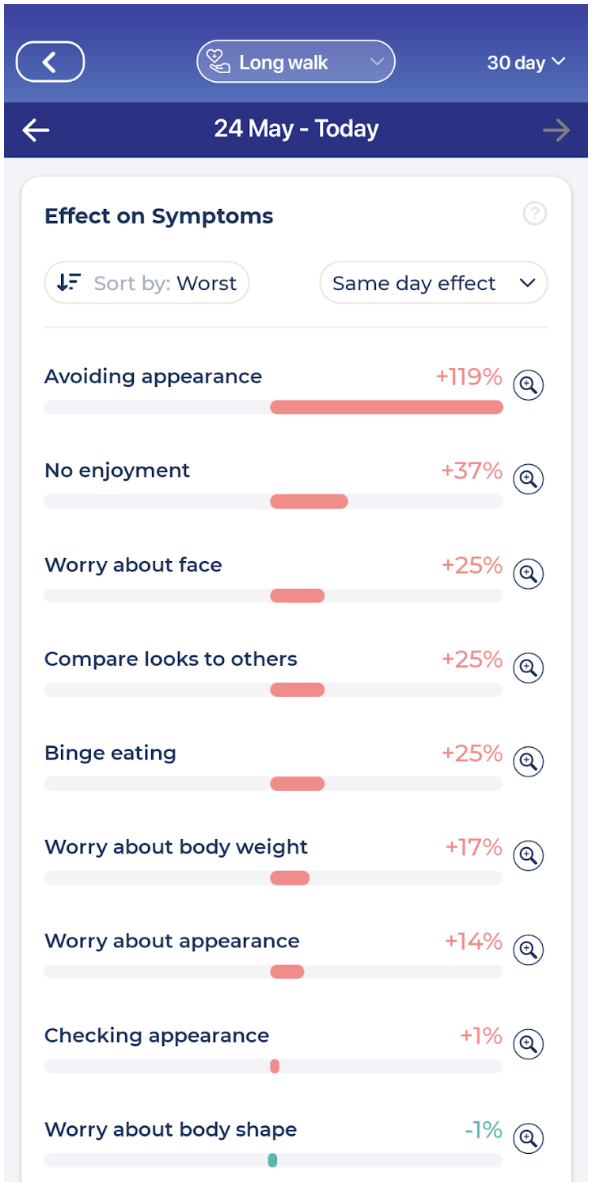
My thoughts on the experience of walking over 10,000 steps a day for a week
I set out on this journey with the aim of improving my sleep and that didn’t really happen. What’s not totally clear in this data is that whilst I slept roughly the same amount as normal, I was also sleeping a lot earlier than usual. My bedtime changed from about 1 am to 10:30 pm, this meant I was able to wake up earlier in the mornings and generally start the day in a more relaxed way. My mood and energy did improve and I found that I felt more balanced, calm, focused, and less tired during the day. I even began some new online drawing classes that I’d been putting off. The biggest problem I had with this new routine was that it didn’t initially pair well with intermittent fasting (something I’ve been doing for about 3 years). After my 90 minute walks, I’d get home and feel hungry but wasn’t meant to be eating. This triggered episodes of binge eating during the days to try to avoid feeling hungry later on. In turn, binge eating (a symptom of my disordered eating) caused symptoms of my BDD to flare up. Things like avoiding my appearance, being self-critical, comparing my looks to others, being overly concerned about my weight, etc. Despite this, I’ve continued to walk over 10,000 steps a day and now – about 2.5 weeks after my first walk – my binge eating and BDD are more under control. Overall, I’ve found that walking over 10,000 steps a day has been pretty great for my overall health, mood, and well being. Even if it hasn’t really done much to improve my sleep.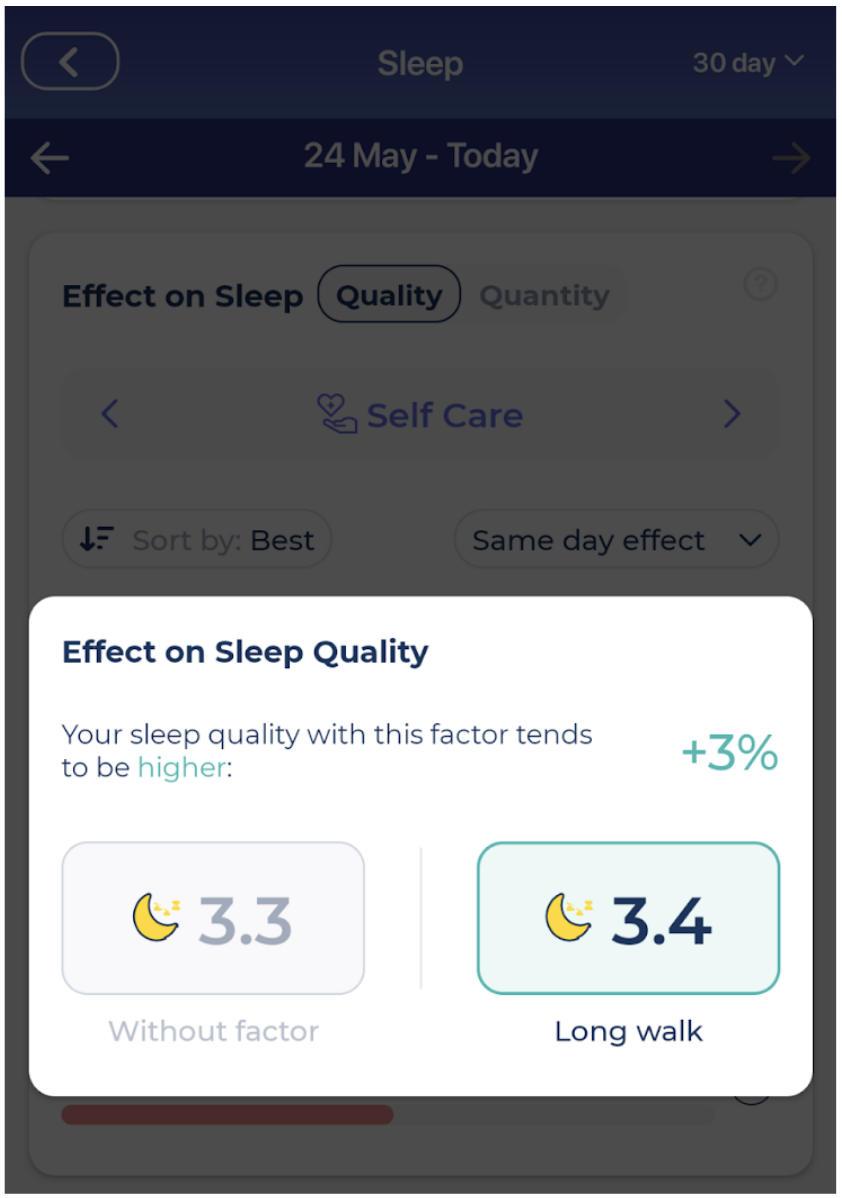
Would I recommend walking over 10,000 steps a day?
Yes… BUT, as mentioned earlier, I don’t think it’s the number of steps that count, or even the steps themselves. What strikes me as being important here is:-
- Spending more time outdoors
- Recognising when you’re getting lazy
- Setting achievable goals for yourself
- Getting some form of exercise every day


